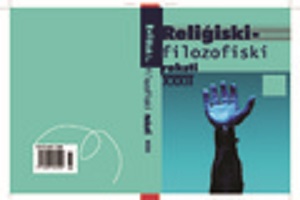Brīvdomātāja dzīve padomju okupācijas laikā Latvijā: mācītāja, filologa un pedagoga Ādolfa Jēkaba Dzeguzes piemērs
The Life of a Free Thinker during the Soviet Occupation in Latvia: the Case of the Pastor, Philologist and Teacher Ādolfs Jēkabs Dzeguze
Author(s): Jana DreimaneSubject(s): Politics and society, Social Theory, Sociology of Culture, WW II and following years (1940 - 1949), Post-War period (1950 - 1989), Sociology of Politics, Identity of Collectives
Published by: Latvijas Universitātes Filozofijas un socioloģijas institūts
Keywords: Stalinism; disobedience; anti-Soviet literature; Committee of State Security of the Latvian SSR; political repression; pastors; biographical method;
Summary/Abstract: The aim of the research is to examine the biography of one person, to explain whether during the Soviet occupation of Latvia (1940‒1941, 1944‒1990) it was possible to preserve freedom of thought and expression, what was the price of this freedom. The study analyzes the life of a man who was not obedient to Soviet power – the pastor, philologist, teacher Ādolfs Jēkabs Dzeguze, using mainly the documents of the National Archives of Latvia (NAL), his file at the National Library of Latvia, as well as articles and publications about him. At the beginning of the second Soviet occupation, during Stalinism, when Latvia was sovietized through repressions, Dzeguze was arrested and tried for keeping the forbidden “counter-revolutionary and fascist” literature. The materials of his criminal case at the (NAL) Latvian State Archives provide evidence that both in labor camps in Vorkuta in the far north of the USSR and later, after returning to Latvia from prison, Dzeguze tried to follow his convictions and chosen life path. Despite close surveillance of the State Security Committee of the Latvian SSR, he completed the theological studies he had begun in the independent Republic of Latvia, and in May 1982 he became a full-fledged pastor at the Riga Missiones congregation of the Evangelical Lutheran Church of Latvia. In addition, complete rehabilitation was achieved in 1966. Nevertheless, in 1974 and 1975, two articles by Dzeguze were published in the exile press, in which the Latvian language writing reforms adopted during the Soviet occupation were fiercely criticized. Dzeguze’s biography shows that persistent nonconformism during the long Soviet occupation was very problematic; in order to be able to continue the path of life he had chosen, sometimes he had to find a compromise with the occupying power.
Journal: Religiski-filozofiski raksti
- Issue Year: XXXII/2022
- Issue No: 1
- Page Range: 198-227
- Page Count: 30
- Language: Latvian

